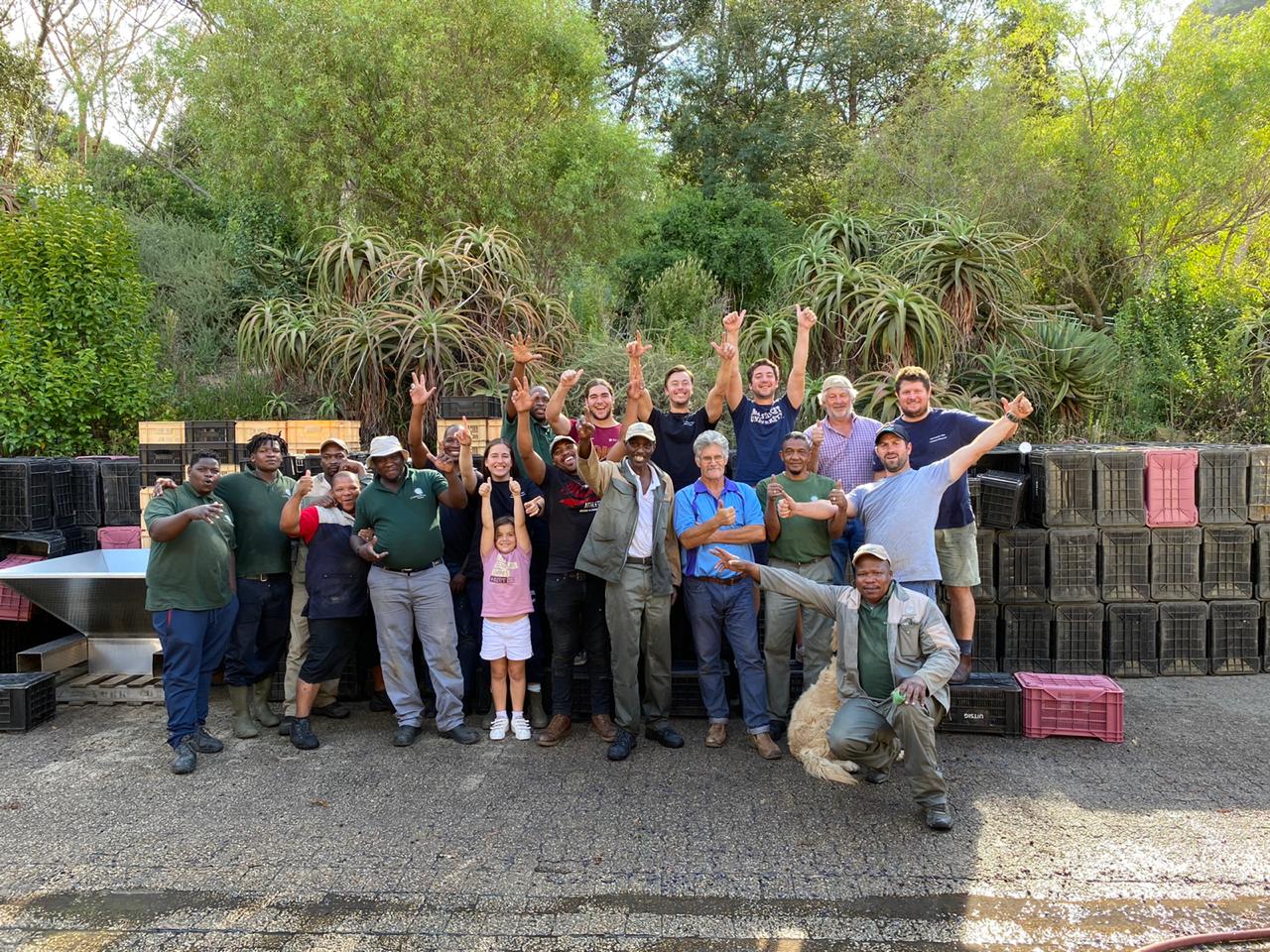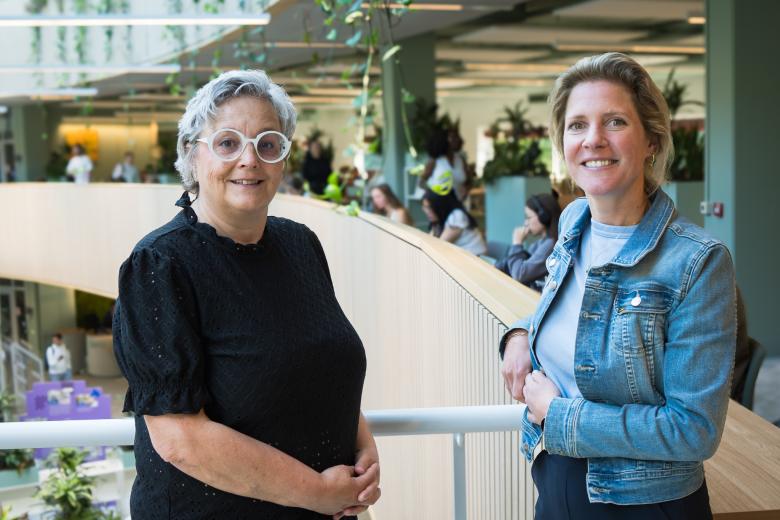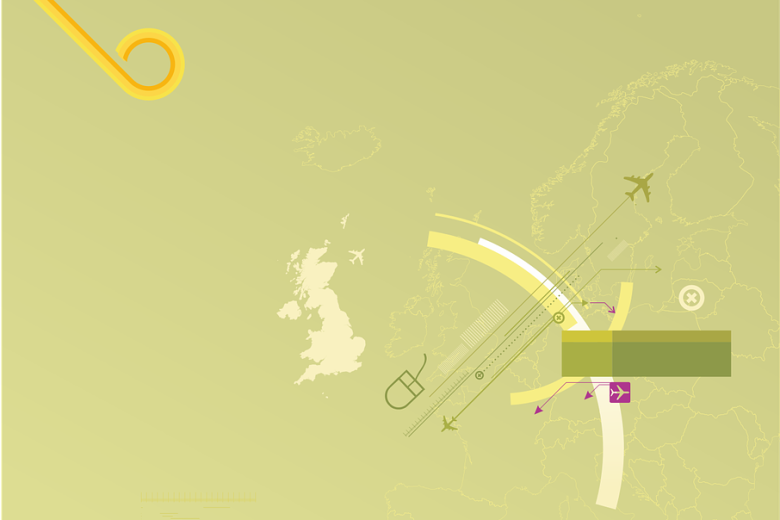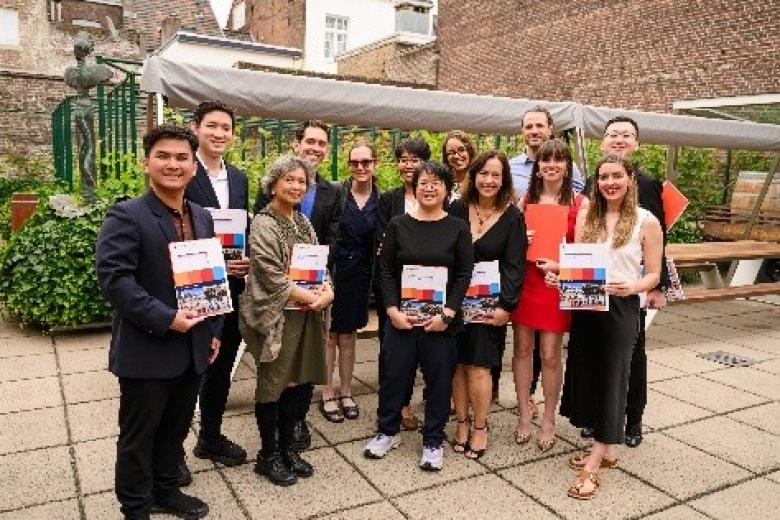Two UM students share their experience living through the corona crisis in South Africa
Jens de Baat Doelman and Christopher Winters, two students from Maastricht University's School of Business and Economics (SBE) were spending this semester abroad in South Africa when the corona crisis hit. As international borders started to close and concerns for their safety grew, they eventually made the difficult decision to return to their homes in Germany; however, this turned out to be a lot more difficult than expected.
In this article, Jens and Chris share with us their experience living through the corona crisis in South Africa and show us how they were able to make the best of a difficult situation.
Who are we?
We are Jens and Chris, we are both from Germany and are currently doing our Master in International Business with a specialisation in 'Organization: Management, Change and Consultancy'. Before we started our Master program, we were lucky to be accepted as participants in the UM International Triangle Program. The ITP is an excellence program that involves three semesters at three different universities with a consulting project at all locations. It goes without saying that we were more than happy to go to South Africa and Great Britain after our first semester in Maastricht. We arrived at the end of January for our semester at the University of Stellenbosch, which is located on the Western Cape of South Africa.
How was our start in South Africa?
We arrived in Stellenbosch with already high expectations about the landscape and the student experience. But little did we know what was really waiting for us here. The nature was breathtaking, our accommodation was simply perfect, as 14 South African students were staying with us, and the city of Stellenbosch offered us both a top-level university and a wonderful everyday life.

What changed with COVID-19?
The situation began to change in February when the first cases of corona in South Africa were confirmed by the government. More cases were reported every day. Although both the number of infections and their development curve were far from those in China or Europe, we knew that South Africa could not be compared with the Netherlands or Germany in this respect. The testing facilities are not nearly as widespread and the data provided by official sources may not be as reliable. The South African President also seemed to be aware of this when he first addressed the nation on 15 March on the Corona crisis: In his first speech on the corona crisis, Cyril Ramaphosa declared a national emergency for South Africa and installed extensive measures such as travel bans and visa withdrawals. In the following days, the University of Stellenbosch interrupted classes, restaurants began to close and our roommates left home to be with their families. You could really feel how the situation changed for the worse. It was also at this time that we thought about flying home for the first time. After continuous communication with the International Relations Office in Maastricht and after thoroughly weighing up the possible scenarios for the next weeks and months in South Africa, we made the decision to come home with a heavy heart.
What did we do and why?
In South Africa, the corona crisis takes place in a completely different context than in Europe. The majority of people are poor, the unemployment rate is high, the health system has its limits and the government does not have much money to spend on expensive economic stimulus programmes. In addition, the living conditions of most people are characterised by the fact that families live in close proximity and at a small distance from each other. We knew that an escalation of the situation would happen more quickly and that the resulting risks to our health and, above all, to our safety would be serious. At that time, we received the information that the crime rate in our neighbourhood in Stellenbosch had already started to rise due to the new developments. So, we were both very lucky when a roommate gave us shelter on her family's wine farm while we would be waiting for our flight home. We accepted with thanks, packed our luggage and drove to Constantia, which lies in the beautiful hills of Cape Town. Since the farm is quite remote and has a sophisticated security system, we finally felt safe again.
What happened in our time on the wine farm?
On 23 March, one of our first days on the farm, President Ramaphosa announced a 21-day nationwide lockdown. From that day on, only supermarkets, pharmacies and medical facilities were allowed to remain open and people were only allowed to leave their homes to get there. As necessary as this measure was for the health of the South African population, it also posed a serious threat to almost every South African business. Overnight, the farm of our friend was not allowed to bring in workers for the grape harvest or open its restaurant. The loss of the harvest and the income of a whole year was to be feared.
We had to help. First of all, we wanted to support in every possible way the wonderful family that gave us shelter in this frightening time. We also thought of the almost 200 employees of the winery whose jobs would be seriously threatened if the winery were to fall into economic hardship. In a way, it was also our chance to give something back to the land and its people, who gave us some of the best times of our lives. So, over the following weeks, we were involved in almost every step of the production of a South African wine and did our best to ensure that the impact of this crisis would be less severe for the farm and its employees. We harvested, processed the grapes, filled them into the gigantic tanks in the wine cellar, assisted the fermentation process and pumped the wine into wooden barrels for the maturing phase.
What is our current situation?
During our first days on the farm we continued to book flights that would take us home and they were cancelled one after the other. In the end, seven of our already booked flights were cancelled. Our efforts to book a flight ended when all commercial flights in South Africa were cancelled due to the lockdown. So, we were all the more pleased that the German Government succeeded in setting up a rescue mission to fly European citizens out of South Africa. Since then we basically lived from one day to the next and were always waiting for our call to board the next rescue flight from Cape Town. Although the work on the wine farm distracted us from the feeling of insecurity, our academic work suffered from the irregularity of our days.
Finally, on 9 April we received a message from the German Ambassador that we would be on one of the next flights. We expect this to be sometime in the week after Easter.
What can we take away from this experience?
These were extremely stressful and unprecedented times of uncertainty. But the experiences we have had are also unprecedented. We have learned that the decisions that are best for you can sometimes be the most painful ones such as when we decided to go home. We have also learned the hard way to be patient. And, of course, we never imagined we would learn so much about good wine and how to produce and distribute it.
But above all, we are grateful. We are grateful to our friend and her family for taking us in. These people are a prime example of South African hospitality. Our thanks also go to the International Relations Office of Maastricht University's School of Business and Economics, namely Ellen Nelissen and Sarah Daemen. They have never ceased to offer their help in every possible way. And last but not least, we are grateful to belong to a continent of countries that not only care about the well-being of their own people, but also look after the citizens of neighbouring countries when they urgently need help. Next week, the German Government will fly us out together with Dutch, Belgian or other European citizens who are not yet at home with their families. It seems like, although we have to distance ourselves (socially) from each other, in the end, we will come closer together.
Also read
-
Randwyck Library and the river of knowledge
Monique Notermans and Meike Kerkhofs-Welkenhuizen witnessed the vision behind a modern library come to life.

-
M-EPLI PhD Research Spotlight on Blessing Eze
M-EPLI PhD researcher, Blessing Eze, is examining the role of private documents in regulating global value chains.

-
MHPE: Looking back and going forward
During the MHPE Campus Period last month we welcomed a new cohort of MHPE students and enjoyed seeing back those who are starting up their Master thesis projects. We are now preparing to hand over to a new MHPE Management Team that will take over on the 1st of September 2025.
